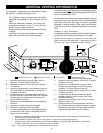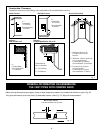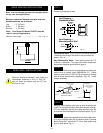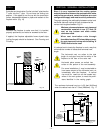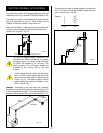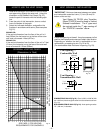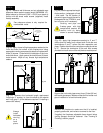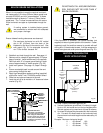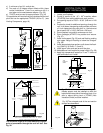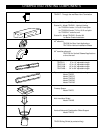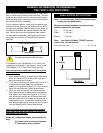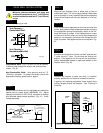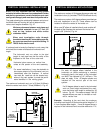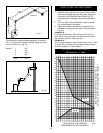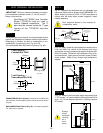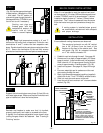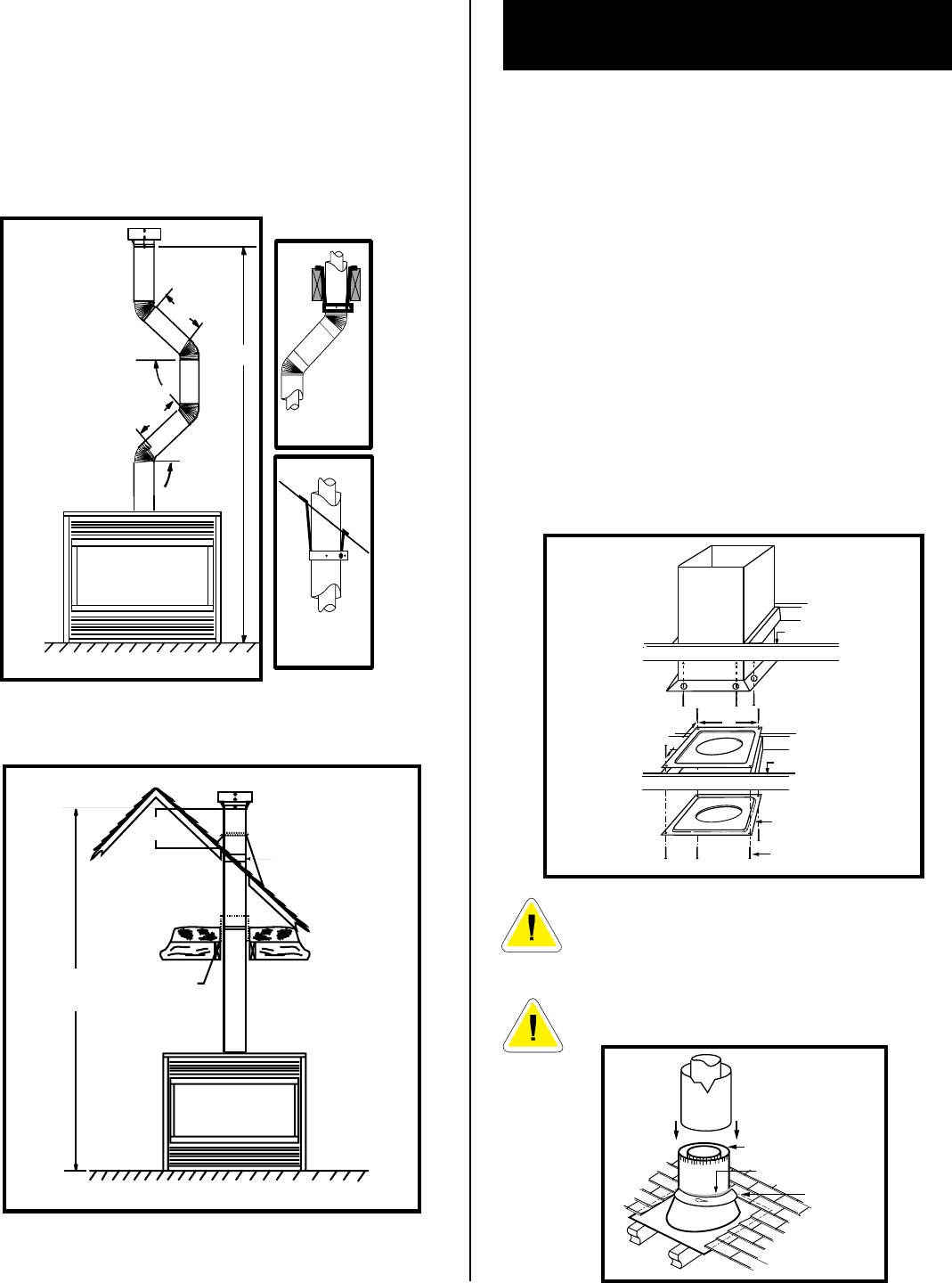
- 16 -
Fig. 36
The minimum height of the vent above the highest
point of penetration throught the roof is 2 feet. See
Fig. 36.
TYPICAL STRAIGHT-UP INSTALLATION
40 FEET
(12.2m)
ATTIC INSULATION
SHIELD
JOISTS
ROOF
VENT TERMINATION
ATTIC INSULATION
ROOF SUPPORT
STORM COLLAR
ROOF FLASHING
2' Min.
CEILING JOISTS
1. Locate your fireplace.
2. Plumb to centre of the (4") 90
o
transition elbow
(7DVRT90) from ceiling above and mark position.
3. Cut opening equal to 9-3/8" x 9-3/8" (240 mm x 240
mm).
4. Proceed to plumb for additional openings through the
roof. In all cases, the opening must provide a minimum
of 1 inch clearance to the vent pipe, i.e., the hole must
be at least 9-3/8" x 9-3/8" (240 mm x 240 mm).
5. Place fireplace into position and secure to floor.
6. Place firestop(s) #7DVFS into position and secure.
(Fig. 37)
7. Install roof support (Fig. 35) and roof flashing making
sure upper flange of flashing is below the shingles.
(Fig. 38)
8. Install appropriate pipe sections until above the flash-
ing. (See Fig. 36 for #'s 7, 8 and 9).
9. Install storm collar and seal around the pipe.
10. Add additional vent lengths for proper height. (Fig. 36)
11. Apply high temperature sealant to 4" and 7" collars of
vent termination and install.
VERTICAL THRU THE
ROOF INSTALLATION
Fig. 37 If there is a room above ceiling level,
firestop spacer must be installed on both the
bottom and the top side of the ceiling joists. If an
attic is above ceiling level a 7DVAIS (Attic
Insulation Shield) must be installed.
Fig. 38 The enlarged ends of the vent section
always face downward.
SEALANT
SHEETMETAL
SCREWS (#5) —
3 PER JOINT
STORM
COLLAR
JOIST
11"
11"
Attic
Insulation
Shield
Ceiling
Installation
JOIST
NAILS (4)
FIRESTOP
SPACER
11"
11"
UPPER FLOOR
45°
45°
2438m
MAX.
8 FEET
2438m
MAX.
8 FEET
40'(12.2m)
TYPICAL OFFSET INSTALLATION
TYPICAL 7DVCS
APPLICATION
TYPICAL ROOF
SUPPORT
APPLICATION
Fig. 33
Fig. 34
Fig. 35
Fig. 38
Fig. 37
c) A minimum of an 8 ft. vertical rise.
d) Two sets of 45 degree elbow offsets within these
vertical installations. From 0 to a maximum of 8 ft. a
vent pipe can be used between elbows. (Fig. 33)
e) 7DVCS must be used to support offsets. (Fig. 34)
This application will require that you first determine the roof
pitch and use the appropriate 7DVSKV (A,B or F). (see
Venting Components, page 18)



